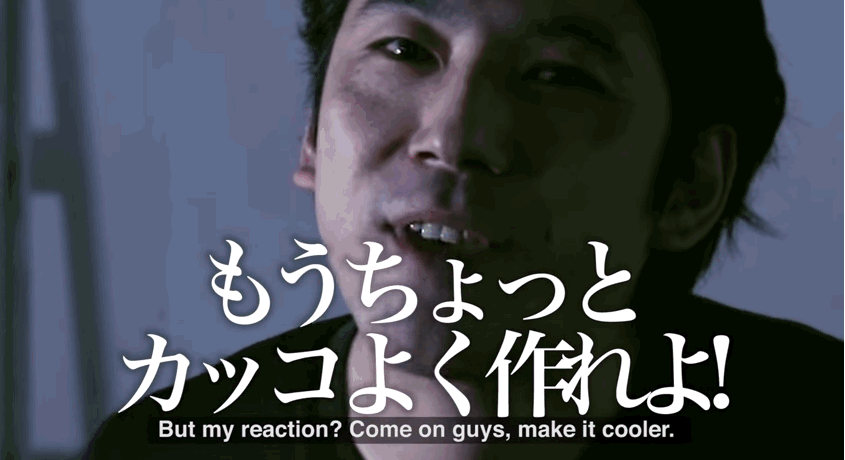“This Report to the Club of Rome attempts to assess the condition of the tropical rainforests over the past 40 years and to project their likely future over the next 40 years, in terms of forest cover change, drivers of deforestation, impacts on biodiversity, and the consequences of climate change.”
Category: ethics – Page 71

If every woman has a smartphone imagine all the empowered people — By Melinda Gates | The Economist
““Who is Sabita?” I was looking right at Sabita Devi when she said these words. She was describing her life as a wife and mother in Jharkhand, one of the poorest states in India, where she has spent most of her days inside the four walls of her home. “No one in my village knew my name,” Sabita told me. Her contact with the outside world was mediated entirely by her husband: who she could talk to, what she could buy, when (and if) she could see a doctor. She was isolated from everyone and everything but her children.”
So — what is Ethereum; and, how does it relate to Law?
Quoted: “Traditional law is a form of agreement. It is an agreement among people and their leaders as to how people should behave. There are also legal contracts between individuals. These contracts are a form of private law that applies to the participants. Both types of agreement are enforced by a government’s legal system.”
“Ethereum is both a digital currency and a programming language. But it is the combination of these ingredients that make it special. Since most agreements involve the exchange of economic value, or have economic consequences, we can implement whole categories of public and private law using Ethereum. An agreement involving transfer of value can be precisely defined and automatically enforced with the same script.”
“When viewed from the future, today’s current legal system seems downright primitive. We have law libraries — buildings filled with words that nobody reads and whose meaning is unclear, even to courts who enforce them arbitrarily. Our private contracts amount to vague personal promises and a mere hope they might be honored.
For the first time, Ethereum offers an alternative. A new kind of law.”
Read the article here > http://etherscripter.com/what_is_ethereum.html

Machine ethics: The robot’s dilemma — Boer Deng | Nature
“Advocates argue that the rule-based approach has one major virtue: it is always clear why the machine makes the choice that it does, because its designers set the rules. That is a crucial concern for the US military, for which autonomous systems are a key strategic goal. Whether machines assist soldiers or carry out potentially lethal missions, ‘the last thing you want is to send an autonomous robot on a military mission and have it work out what ethical rules it should follow in the middle of things’.”

Giant Battle Bots from Japan and the US Are Scheduled To Duel | TNW News
Remember Pacific Rim? Giant battle droids kicking the hell out of monsters? Well, that’s (almost) becoming a reality: Giant bots built in Japan and America are set to go head-to-head in combat.

No, an AI Did Not Just “Lash Out” at Its Human Programmer
A slew of articles are claiming that an “exasperated” artificial intelligence snapped at its programmer during a conversation about morality and ethics. Sadly, it’s another example of the media overselling the capabilities of simple chatbots.

Accelerated modern human–induced species losses: Entering the sixth mass extinction | Science Advances
“The evidence is incontrovertible that recent extinction rates are unprecedented in human history and highly unusual in Earth’s history. Our analysis emphasizes that our global society has started to destroy species of other organisms at an accelerating rate, initiating a mass extinction episode unparalleled for 65 million years. If the currently elevated extinction pace is allowed to continue, humans will soon (in as little as three human lifetimes) be deprived of many biodiversity benefits.”
What are our rights and duties towards alien life? — Lizzie Wade | AEON
“The ethics of encountering non-sentient alien life in our solar systems boils down to a core dilemma, says Waller. ‘Is it about conservation and preservation? Or is it about our needs, wants, and desires?’ On Earth, natural-resource grabs have a history of bringing out the worst in us as a species…There’s plenty of reason to believe other planets will be chock-full of resources we’d like to exploit, even if the life forms are microbial – perhaps especially if they’re microbial.” Read more
What sins of the future are you committing right now? — By David J. Hill SingularityHub
Odds are you’re a decent, upstanding person. You abide by the laws, pay taxes, and don’t rock the boat. You value security but not at the expense of privacy. Like the majority of people around you, you’re driven by self interest but not to the detriment of others. And if someone is clearly in need, you’ll try to help them, if you feel you can make a difference.
In other words, you’re a moral human being…or so you think. Read more
Esther Perel: Sex, Stability, and Self-Fulfillment
In the Galactic Public Archives film Click Here for Happiness Prof. Yair Amichai-Hamburger contends that even though technology allows us to connect with one another in unprecedented ways, “loneliness is the disease of the 21st century.” From Hamburger’s perspective, communication technology (coupled with human nature) tempts us to mistake superficial connections for meaningful ones, urges us to value quantity over quality. It creates new opportunities for experiencing the best of what it means to be human, but often our interaction with technology suggests something more akin to an addict on a new drug.
Therapist and author Esther Perel uses this film to explore our ‘existential aloneness’ through a different lens. Much as technology continues to open new doors for connection, the rapid cultural changes of the past 100 years allow us to choose the sort of life we wish to live. We make our most important connections by choice instead of having them mandated to us by tradition. But as is the case with technology, sometimes it isn’t clear if we are primed to use these new opportunities to build more fulfilling lives or simply to frustrate ourselves, building a world where more people feel alone.
Has our increased valuing of independence and self-fulfillment created a fatal conflict with the romantic ideal of ‘the couple?’ Can we have it all or do we need to choose between freedom and belonging? Perel isn’t sure that we can have it all, but she thinks that we can carve out a path that delivers more to more of us than would a retreat into tradition. “Let’s not romanticize the past. I don’t think that the fate of women in those marriages was particularly glorious. It seems that quite a few people were waiting to get out.” Perel argues that the only way that the future of ‘the couple’ can be navigated satisfactorily is if we continue to build upon the social progress of the past century. “You need two people who have equal power to have this communication, or to have this negotiation even able to take place without it being a power maneuver. If it doesn’t happen between two emancipated people it [becomes] a power system, which it was throughout history.”
What do you hope to build in a relationship? What connections do you value? What are your boundaries?